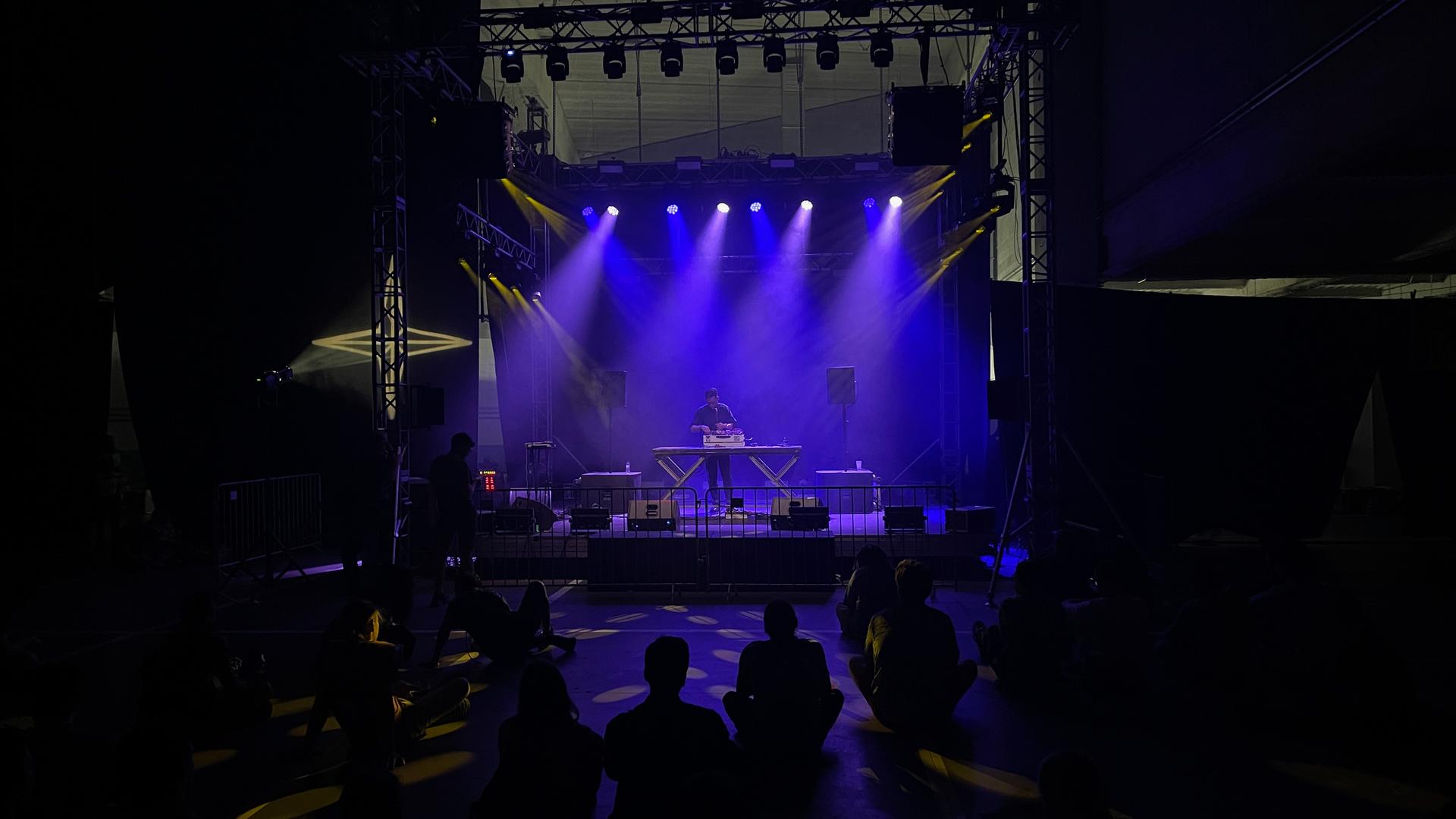On Feb. 24, 2022, at the onset of Russia’s full-scale invasion, Ukrainian composer Oleh Shpudeiko left his hometown of Kyiv.
He found shelter with some relatives in the western city of Lviv, where other musicians from across the country had also fled. Like him, they were faced with a dilemma: What should artists do in times of war?
“We had a very severe case of artistic identity problem, because we didn’t really understand what we are anymore,” Shpudeiko said.
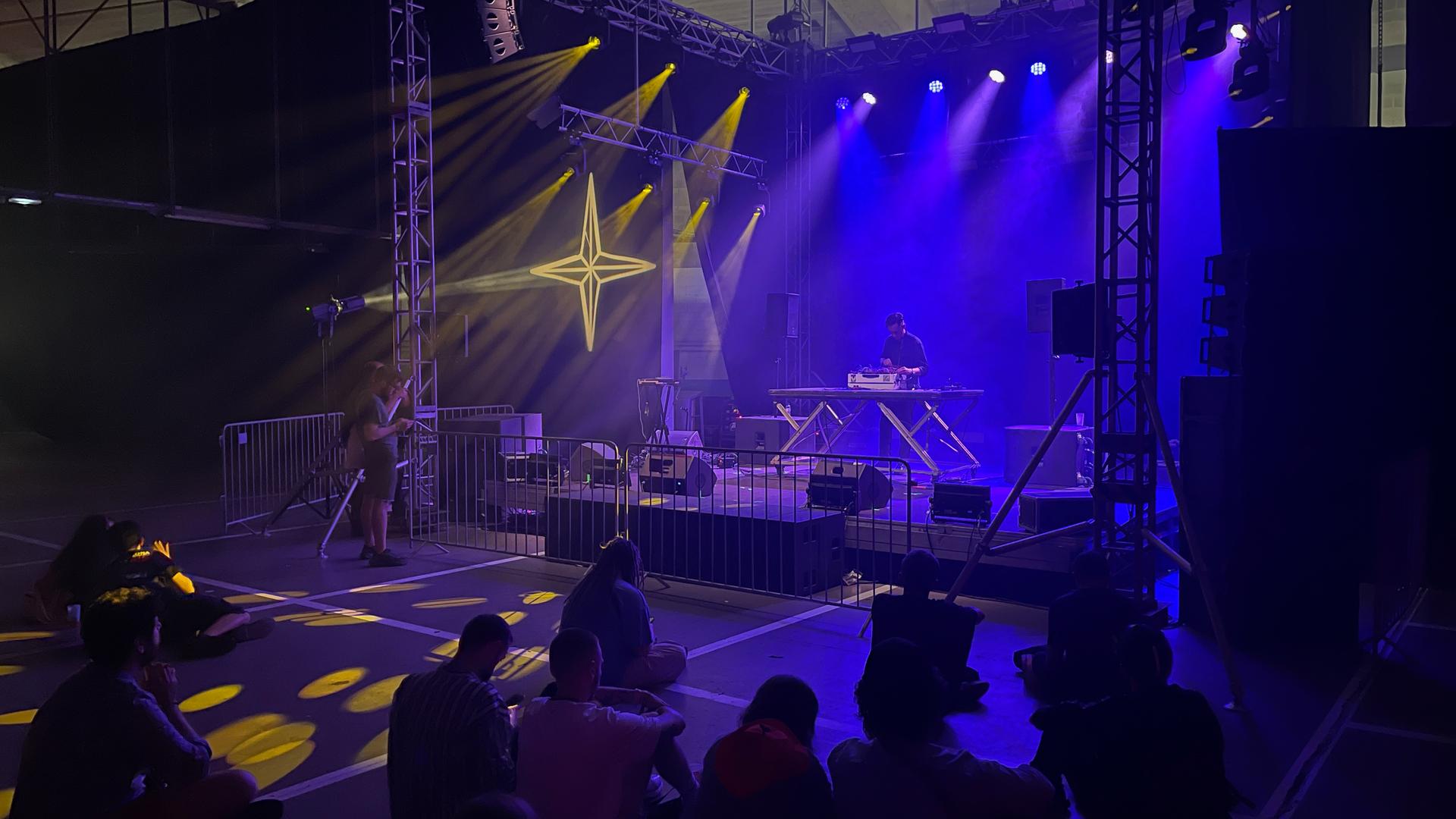
Some artists joined the Ukrainian armed forces. Others changed jobs. Some tried to use art to defend their country. Shpudieiko was one of the latter.
With a career spanning 15 years, Shpudeiko, also known as Heinali, has recorded a dozen albums. His core practice consists of reimagining early music from medieval times with his synthesizer, resulting in electronic sounds that combine tradition and experimentation.
But amid war, his work took a different direction: To heal his trauma, he made “Kyiv Eternal,” an album fusing electronic music with recordings of his past life.
For Shpudeiko, the turning point was a month into the war — he was set to play a livestream show at a music school in Lviv to raise funds for the Musicians Defend Ukraine foundation.
But air-raid alarms went off before they could start.
“We had to either postpone or cancel several of our livestreams,” Shpudeiko recalled. “We decided to just move the whole thing to the nearest bomb shelter.”
In the video of the performance, Shpudeiko appears alone in the middle of a neglected room, wearing a black winter jacket. His modular synthesizer looks futuristic, with colorful cables emerging as if in the console of a spaceship. The machine emits eerie sounds as Shpudieiko carefully turns its knobs.
“When I was rehearsing, it didn’t really feel like making music — it felt like political activism,” Shpudeiko said. “But during my performance, something clicked, something changed, and I felt as if I’m a musician again.”
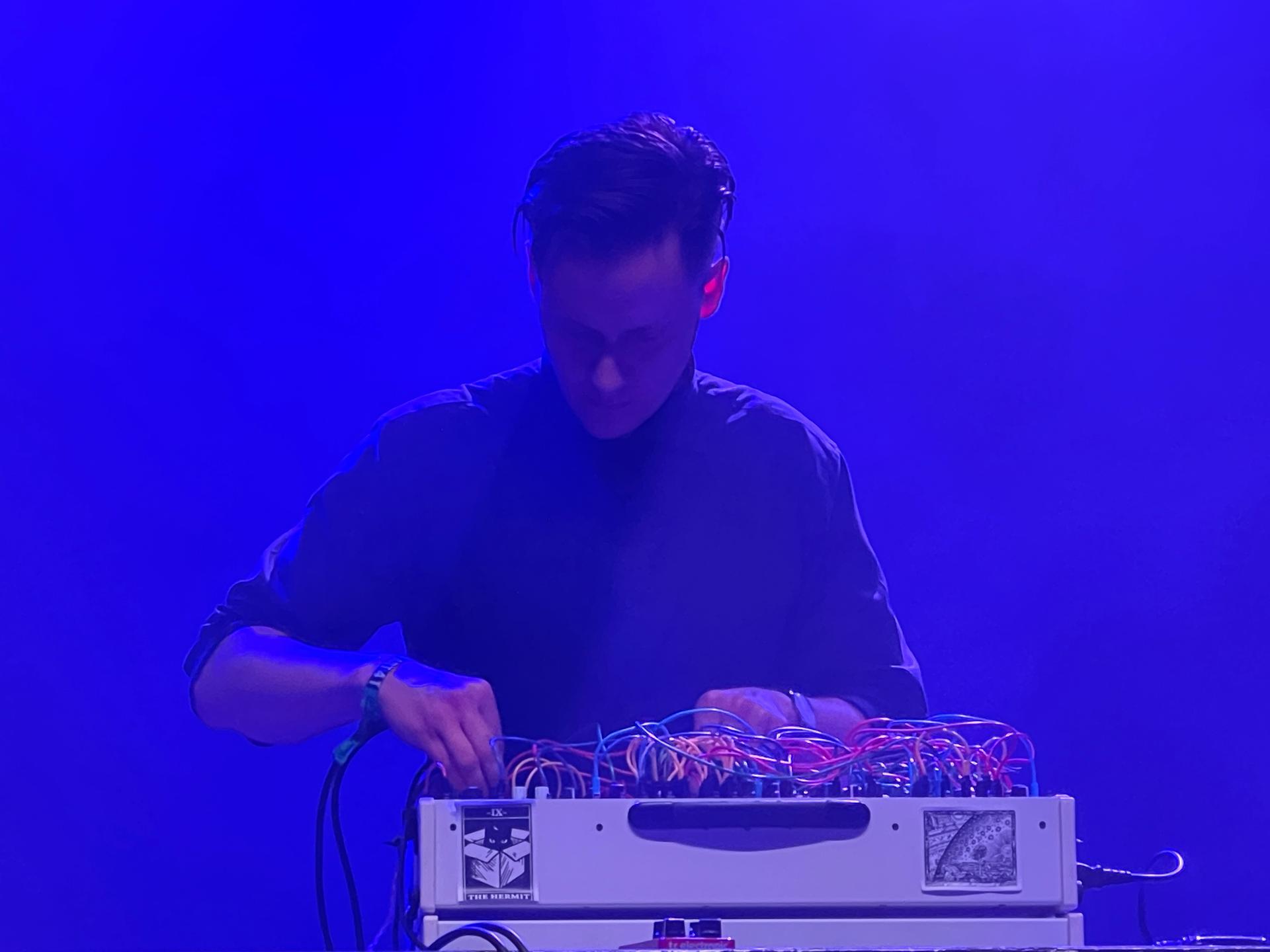
The feeling didn’t last. Later that day, back at the apartment of the relatives he was staying with, news came of the massacre of civilians at the hands of Russian troops in the town of Bucha, next to Kyiv.
“I never felt anything like this before,” Shpudeiko said. “Every person that was killed there, when I saw the photos … It felt as if I am these people.”
‘The city was like a living organism’
In April 2022, after Russian forces retreated from Ukraine’s capital, Shpudeiko finally returned to his home. He experienced Kyiv in a completely new way.
“The city was like a living organism, a living being,” Shpudeiko said.
It made him want to embrace it, hug it, protect it from harm.
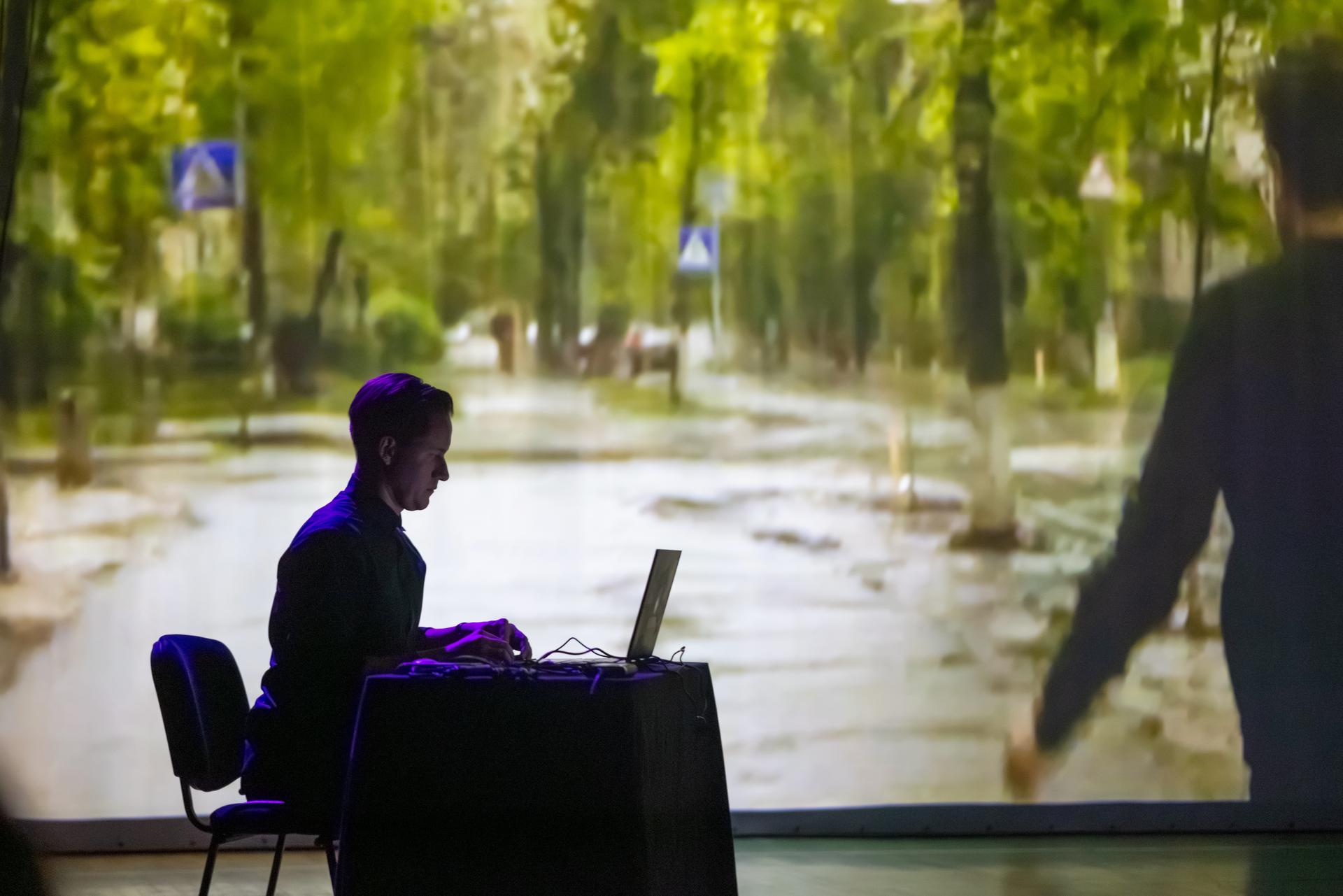
The experience was painful, but also interesting artistically, so he decided to turn it into music. In July, he left his home again for an art residency in Cologne, Germany. He began working on what would become “Kyiv Eternal.”
“It’s a very traumatic album,” he said. “It’s an album that I had to record — I didn’t really want to record it, I just had to record it.”
“Kyiv Eternal,” released this past February, coinciding with the first anniversary of the Russian invasion, is a time capsule of the city’s soundscape prior to the war.
Across 49 minutes, the eerie tones of Heinali’s synthesizer interwave with real-life recordings of Kyiv, such as the bustle at the Maidan square subway station, or the sound of bus drivers calling out destinations.
To Shpudeiko, these are the city’s “earmarks”: the sonic equivalent of visual landmarks. He began capturing them in 2011 after he purchased an inexpensive audio recorder.
“The interesting thing about Kyiv is that it doesn’t really have any prominent earmarks. But it has a lot of small earmarks,” he said.
Shpudeiko lets the listener inhabit the music, and wander around in the Kyiv of yesterday. The resulting atmosphere is spacious, airy and irresolute.
In one of the 11 tracks, named “Silpo,” after one of Ukraine’s most-popular supermarket chains, the distinct, high-pitch noise of cash registers is revamped into an ethereal chime.
In “Botanichnyi Sad,” birds tweeting at the botanical garden combine with erratic synthesizer notes, creating a dialogue between the artificial and the organic.
All these recordings, however mundane, were connected with Shpudieiko’s personal story in Kyv.
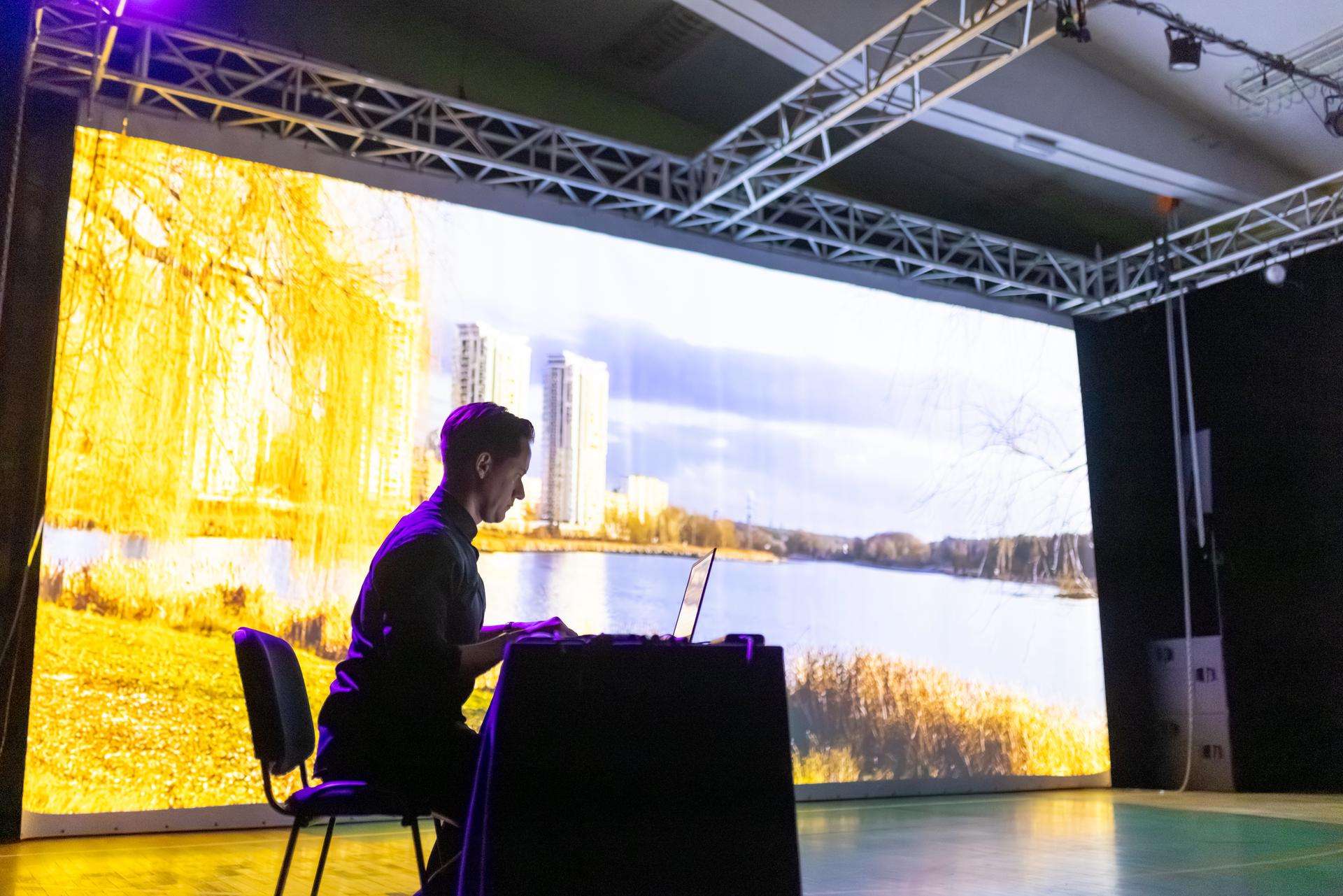
“We don’t really have this past anymore,” he said. “And we are also devoid of the future this past had.”
By transforming these recordings into something new, not only does he hope to remember, but also to imagine a different future.
‘Every music is political’
Shpudeiko was born in 1985, a few years before Ukraine declared independence from the former USSR. He came of age with the Orange Revolution in 2004, and a decade later, took part in the Maidan protests that deposed President Viktor F. Yanukovych after he attempted to drag the country closer to Moscow.
The revolution was both political and cultural. The following years, Kyiv saw the emergence of a bustling electronic music scene, of which Shpudeiko was part.
“After the second Maidan, everything changed,” he said.
Now, some of the artists who were part of this cultural revival are proving that electronic music can be a powerful tool for resistance in the face of Russia’s aggression — whether by livestreaming a concert from a bomb shelter, or by releasing an ambient music album featuring old recordings.
“Some people think that electronic music is apolitical, but it is not,” he explained. “Every music is political, whether you want it or not: you can just ignore the political context, or you can work with it.”
Somehow, Shpudeiko has overcome his hesitancy about artists’ role in times of war. He said Russia is trying to destroy Ukrainian culture and also uses its own culture as a weapon. Therefore, preserving and promoting Ukrainian culture has become Shpudieiko’s mission.
For the last year, Shpudeiko has been performing throughout Europe, including in Germany, Austria, Slovakia and Spain. But he refrained from playing his latest album.
“I really hope to perform ‘Kyiv Eternal’ after the war is over in Kyiv, because it makes all the sense to perform it there,” he said.
However, he decided to make an exception this past June after he was invited to play in Warsaw, Poland, one of the cities that welcomed many Ukrainian refugees.
“When I am in Poland, I feel almost like I’m in a distant part of Ukraine. So, it feels almost like home there,” he said.
His performance was held at a sports hall as part of the Ephemera festival. Shpudeiko sat with his computer in front of the bleachers filled with people. Behind him, a giant screen displayed photos and videos that fellow Ukrainians had sent him. Like “Kyiv Eternal,” they were memory capsules of a peaceful life before the war.
Our coverage reaches millions each week, but only a small fraction of listeners contribute to sustain our program. We still need 224 more people to donate $100 or $10/monthly to unlock our $67,000 match. Will you help us get there today?
